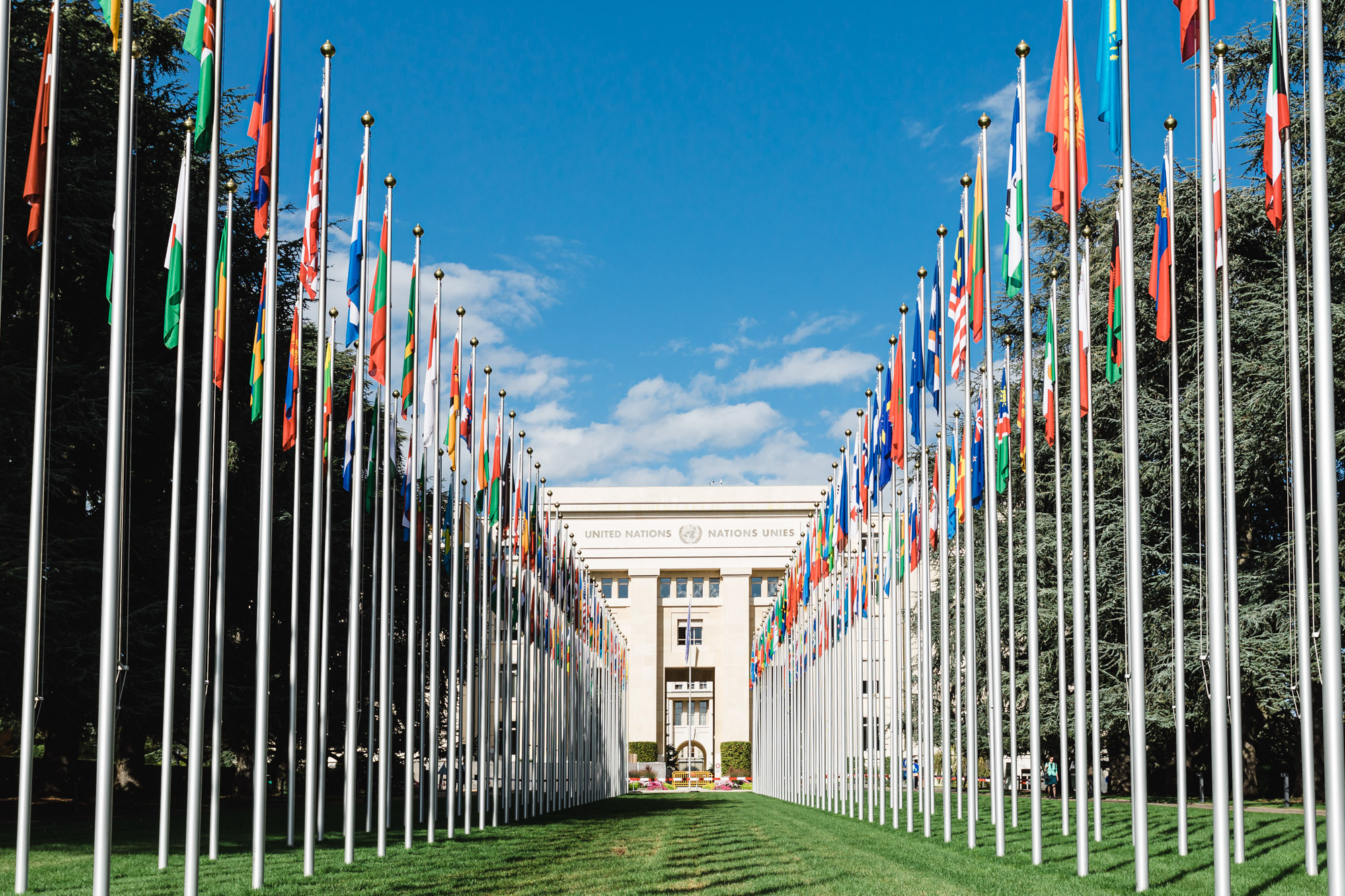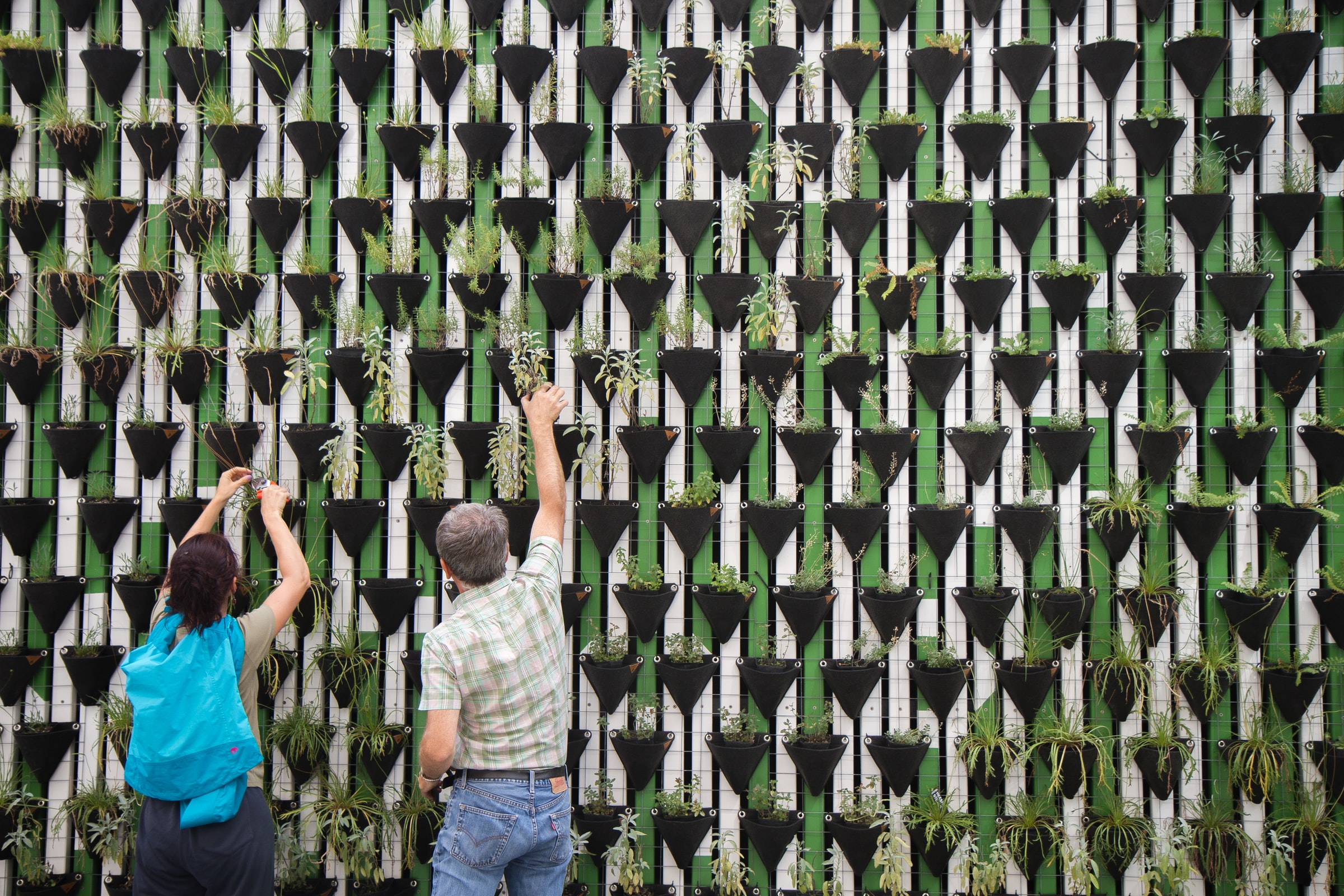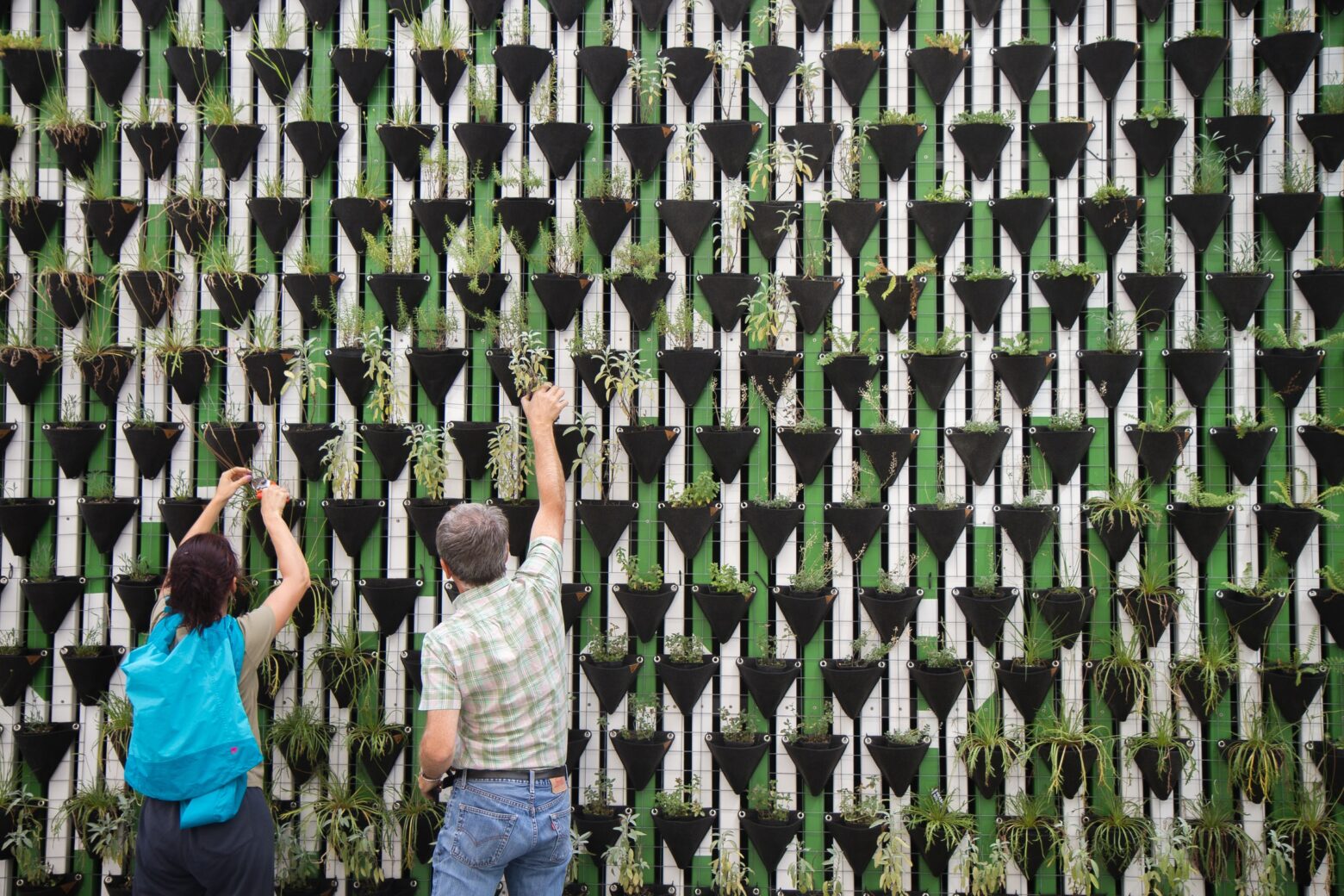Food industry sustainability. Gender equality for an inclusive energy transition. Are we building back better? Which countries are stepping up climate action ahead of COP26? Wind variability and impact on electricity markets. Addressing the climate crisis digitally: the power of imagery to communicate the urgency of acting now. Including natural disasters into macro-fiscal models and analyses. Discover these and more online events of the week!
You can also subscribe to Climate Online’s newsletter to be reminded about weekly event updates by e-mail:

Biodiversity & Environment
10 March, 18:00 – 19:00 CET
“Leopards, mountains and politics” by University of Oxford
Although its broad geographical range and charismatic appeal make the leopard one of the most potent mammalian ambassador species, it is experiencing a greater range loss than most other large terrestrial carnivores. In Asia, leopard subspecies currently occur in only 16% of their historical range, mainly in mountainous landscapes. The majority of the remaining leopard montane range is in Asia’s borderlands, and thus in most countries conservation of leopards is dependent on trans-boundary collaboration. In this discussion hosted by the Oxford Martin School, Dr Mohammad Farhadinia will explore the critical role of mountains for biodiversity conservation amidst international political concerns.
11 – 12 March
“We Value Nature 10-Day Challenge Sessions” by We Value Nature, IUCN and World Business Council for Sustainable Development – WBCSD
There has never been a better time for businesses to assess their impacts and dependencies on nature. Through understanding and considering the risks and opportunities created by nature, businesses can make better decisions that benefit themselves, society and the planet as a whole. The We Value Nature 10-Day Challenge consists a series of practical sessions and small challenges spread across 10 days between 11 and 24th March. Full programme of the events is available here.

Climate Policy & COP26
8 – 12 March
“Asia-Pacific Climate Change Adaptation Forum” by Ministry of the Environment of Japan, Government of Japan and UNEP
The 7th APAN Forum will be held virtually under the theme: Enabling Resilience for All: The Critical Decade to Scale-up Action, sharing learnings from actions towards climate-resilient development. Resilience embodies the desired end-point of adaptation, applicable to natural, human, economic, and engineered systems. For this Forum theme, adequate enabling conditions and access to support through which resilience may be built, maintained, and strengthened are identified as a) climate governance; b) planning and processes; c) science and assessment; d) technologies and practices; e) finance and investments.
8 March, 14:00 – 15:00 CET
“Net Zero for Local Communities” by University of Oxford
Local communities have an important role to play in the net zero transition, developing new models of collective living to both mitigate and adapt to climate change. Cities in particular represent 70% of the worlds emissions and are expected to grow to 68% of the global population by 2050. This discussion will explore what it means for local communities to set out on a pathway to net zero. Kaya Axelsson, Radhika Khosla, Nicole Yukon and Steve Smith will discuss what is required to instigate community-wide shifts to low carbon lifestyles as well as the community stakeholder processes needed to drive action from the bottom up and ensure that some are not left behind in the net zero transition.
9 March, 17:00 – 18:00 CET
“Decarbonizing Industry: Low-Carbon Production of Iron and Steel” by Columbia University
Iron and steel production is one of the largest and most important commodity sectors in the global economy, accounting for more than $2.5 trillion of sales and tied to millions of jobs around the world. The 1.8 billion tons of iron and steel made every year also contribute to global warming, accounting for more than 6% of global greenhouse gas emissions that cause climate change. This online event will be focused on the dynamic landscape of net-zero energy systems in heavy industry. Research examines four potential approaches to decarbonizing hard-to-abate sectors like iron and steel production: zero-carbon hydrogen, biomass, electrification, and CCS; and assesses the current, likely and projected costs.
10 March, 9:45 – 11:15 CET
“Climate Risk Assessment on Hydropower” by UNESCO
The webinar will focus on the climate-water-energy nexus, drawing upon experiences and lessons learned in South Asia. Presenters will share two different approaches to climate risk assessments recently applied in Sri Lanka and Nepal. The first presentation will highlight experience implementing a comprehensive analysis of infrastructure vulnerability in transport, water, and energy sectors by integrating a “top-down” climate science approach with a “bottom-up” stakeholder-driven approach in Sri Lanka’s Kelani River Basin. In the second presentation, a speaker will discuss his work assessing the future impacts of climate change on Nepal’s hydroelectricity sector and the associated findings.
10 March, 10:30 – 12:00 CET
“Opportunities in Crises: The role of energy taxes and stimulus in shaping India’s green recovery” by International Institute for Sustainable Development – IISD
India is a leader among large emerging economies for its innovative use of fossil fuel taxes, such as the coal cess and excise taxes, to raise revenues and foster a clean energy transition. This combination of fossil fuel taxes and support for renewable energy characterizes both the Nordic and Indian approaches to the energy transition. This webinar is unique in bringing together diverse perspectives and specific examples of green fiscal reforms and recovery strategies to inform decision-making by governments and offers valuable insights for researchers and policy experts.
10 March, 14:00 – 15:30 CET
“Using Revenue from Emissions Trading” by International Climate Action Partnership – ICAP
How can auctioning revenues from an emissions trading system be used to either enhance the mitigation effect of the ETS, for instance by investing in additional mitigation potential or removing barriers to cost-effective mitigation, or to cushion adverse effects of carbon pricing, such as distributional impacts and cost increases? As public budgets strain in the wake of the global coronavirus pandemic, and with jurisdictions facing daunting investment needs to achieve ambitious climate commitments, emissions trading can serve as an important source of revenue.
10 March, 15:00 – 16:00 CET
“Including natural disasters into macro-fiscal models and analyses” by RFF-CMCC European Institute on Economics and the Environment and World Bank
With increasing attention to risks from climate change, including at the World Bank, IMF, and many central banks, a lot of work is ongoing to include natural disasters and other climate change risks into the models and tools used to design macro-fiscal policies. The objective is to better inform economic, fiscal, and monetary policies, and take climate change into account in debt sustainability and other macroeconomic assessments. However, macroeconomic models have not been designed to explore the consequences of natural shocks and stressors, which makes this inclusion far from straightforward. Using examples from a few countries and projects, this presentation will review a few important considerations and mechanisms that need to be taken into account in macro-fiscal assessments of natural disaster and climate change risks, and propose solutions to do so.
10 March, 16:00 – 17:00 CET
“Which Countries are Stepping Up Climate Action Ahead of COP26?” by World Resources Institute – WRI
While the COVID-19 crisis has delayed the process of developing and submitting enhanced Nationally Determined Contributions (NDCs) for many countries, over 70 countries submitted new or updated NDCs in 2020, many of them with strengthened ambition on mitigation, and many more plans are expected to be unveiled in the months ahead. How strong or weak are the national climate plans countries released in 2020? Which major emitters haven’t unveiled their national climate plans yet – and which are likely to enhance? And how will we know if these new national climate plans collectively put us on a path to limiting dangerous levels of warming?
11 March, 12:00 – 13:00 CET
“Speculation or market forces? What drives the EU ETS price and what does this tell us about abatement costs” by University of Oxford
The EU Emission Trading System has been one of the central pieces of climate legislation for the European Union countries since 2005. Over these 15 years, the price of an EU ETS Allowance (EUA) has fluctuated greatly, dropping to very low levels for many years before rallying to new heights in recent months. In this paper, using various Indicator Saturation methods, we explore to which degree the EUA price was driven by financial market speculation or by underlying market forces, such as fossil fuel prices. Using recently developed methods, we are able to quantify how these price dynamics have changed over time, which further allows us to analyse how announcements of policy changes have changed the price expectations in the market.
11 March, 13:30 – 15:00 CET
“Clean Development Mechanism method transformation: updating and transforming CDM methods for use in an Article 6 context” by University of Zurich
The event aims to foster a technical and academic exchange on how to build on CDM methodologies and tools when designing methodological frameworks that are ‘fit for Article 6.’ In the event, we are looking forward to discussing the key messages from the study ‘CDM method transformation’ (2020), their applicability in a real-life context and the ‘blind spots’ of current CDM methodologies and tools that practitioners need to fill in their Article 6 pilot activities.
12 March, 17:00 – 18:00 CET
“Uncommon Law: Judging in the Anthropocene” (by University of Houston Law Center)
The origin story of environmental law begins with judges working valiantly to protect the environment, but ultimately, out of an apparent necessity, passing responsibility to legislators and regulators. There is need to write a new origin story in which courts, legislators, and regulators carry shared responsibility. The threat of climate change demands a turn to courts for a variety of services, not least, adjudication that uncovers individual suffering and declaration of norms of right and responsibility. The judge’s role in candidly attending to these meaningful decisions can be the catalyst for much needed political action … This virtual lecture features Professor Joshua Galperin, University of Pittsburgh School of Law, discussing his article.
12 March, 18:00 – 19:00 CET
“Addressing the Climate Crisis Digitally: The Power of Imagery to Communicate the Urgency of Acting Now” by Climate Outreach and Yale University
Join a conversation with Toby Smith, Visuals and Media Programme Lead at Climate Outreach in the UK. He will discuss how Climate Visuals, a program of Climate Outreach, translated research insights into 7 accessible Core Principles and created a popular reference library of hundreds of photographs illustrating the principles. The focus of Climate Visuals is on how images can motivate action – emphasizing digital media. Hosted by the Yale Program on Climate Change Communication.

Renewables & Energy Transition
8 March, 16:00 – 17:00 CET
“Wind Variability and Impact on Markets” by International Association for Energy Economics
Discussion about the growth of wind in Texas, U.S., and the challenges to electricity system operation under high levels of wind. We observe that Texas has, by far, the highest wind penetration of the three interconnections in the United States and the highest penetration of any balancing area, so that Texas is a microcosm of high wind challenges. To understand some of the challenges, we describe statistical modeling of wind power production. The modeling allows understanding of the manner in which wind power and wind power variability will scale with increased capacity.
9 March, 10:00 – 10:30 CET
“Green hydrogen: A guide to policy making” by International Renewable Energy Agency – IRENA
The last two years have seen an increased focus on net zero emissions energy systems. To achieve this goal, even the most difficult to abate sectors need to be tackled. Hydrogen can complement electrification and energy efficiency in achieving this goal. Green hydrogen can link the renewable electricity with those applications that are difficult to electrify, while providing flexibility to the power system. Yet, today, most of the policies are targeted to the transport sector. A broader policy support will be fundamental for hydrogen to achieve its future potential as an ubiquitous energy carrier. This webinar will share key takeaways from the recent IRENA report Green Hydrogen: A Guide to Policy Makers and will go through the policy pillars to transition green hydrogen from niche to mainstream. These include building national hydrogen strategies, identifying policy priorities, guarantees of origin and enabling policies.
9 March, 10:00 – 12:00 CET
“Digitalisation in the heating and cooling industry – combining policy and project perspectives” by EHPA
Deploying highly efficient heating and cooling technologies such as heat pumps and combining them with innovative processes such as digitalisation (that has a proven effectiveness in demonstration projects and pilot sites, all the while adapting and improving upon policy approaches) creates the basis for the upcoming energy transition, where Europe can be leading the way.
9 March, 16:00 – 18:00 CET
“Investing in a climate-neutral recovery” by The Buildings Performance Institute Europe – BPIE
This webinar features high-level presentations on the EU and Canada’s overarching plans and investment strategies to boost energy efficient renovations in buildings, as part of their sustainable economic recovery strategies.
9 March, 19:00 – 20:15 CET
“A Hydrogen Future? Exploring Pathways to Decarbonization” by Resources for the Future – RFF
Hydrogen has the potential for extensive use as a source of clean fuel and as an industrial feedstock—but it is expensive to produce, and current methods of production are very carbon intensive. Increased use of decarbonized “blue” and “green” hydrogen—hydrogen produced from natural gas with carbon capture technology and from electrolysis with renewable or nuclear energy, respectively—has the potential to greatly reduce emissions from industrial production processes and electricity generation. Recent research identifies cost-effective opportunities for decarbonized hydrogen and examines short-term policy options to make blue and green hydrogen more competitive in the US industrial and power sectors.
12 March, 20:00 – 21:00 CET
“2021 Sustainable Energy in America Factbook” by Environmental and Energy Study Institute – EESI
The ninth edition of the Sustainable Energy in America Factbook, published by BloombergNEF and the Business Council for Sustainable Energy provides updates on industry information and trends for the U.S. energy economy, with an in-depth look at the energy efficiency, natural gas, and renewable energy sectors, as well as emerging areas such as digitalization, micro-grids, offshore wind, hydrogen, and renewable natural gas. Watch the event live here.

Sustainability & Circular Economy
8 March, 10:00 – 12:30 CET
“Food Industry Sustainability” by IntelliDigest, STFC Food Network, Women’s Engineering Society and Royal Academy of Engineering
Join this webinar to explore how our food systems are undergoing significant change across entire supply chains. Speakers will critically examine the increasing role of smart technology in key innovations, regulatory changes and available supports that are contributing positively to a new resilient and sustainable global food system. With contributors from international institutions, think-and-do tanks, leading academic institutions, and emerging and global food brands, the event will bring together key stakeholders on global food sustainability.
8 March, 13:30 – 14:30 CET
“Gender Equality for an Inclusive Energy Transition: Women Leading the Way in Solar Energy” by International Renewable Energy Agency – IRENA
Even as renewable energy takes centre stage in the energy transition, women are still underrepresented in the sector (32%). Gender inequality is most evident at decision-making levels. Across the economy, the overall number of women serving on company boards and in senior management positions is painfully low, as is true in policymaking and governance. The event will provide the stage for a dynamic dialogue on the challenges and barriers, the lessons learnt, and the success stories of women leaders in the solar PV sector. The event also serves as the official launch of the new IRENA Global Gender Survey of the Solar Photovoltaic (PV) Industry.
8 March, 19:00 – 20:00 CET
“Bridging the gender gap across the clean energy innovation ecosystem” (by Atlantic Council Global Energy Center)
The rate of innovation in clean energy ecosystems has increased rapidly, amid the energy transition. Despite this, women are vastly underrepresented in the clean energy and cleantech industries. Join a conversation with industry leaders and innovators about how organizations can bridge the gender gap across the clean energy innovation ecosystem. The speakers will discuss the progress made to date as well as remaining challenges faced by women entering the clean energy and cleantech industries.
9 March, 11:00 – 12:30 CET
“Circular economy for buildings: the experience of 3 projects” by BuildUp EU
Around 400 million tons of construction and demolition waste, excluding excavation materials, are yearly generated and then mostly landfilled in EU. On the other hand, concrete is the most widely used material in building, with a growing trend towards prefabrication. VEEP, EU’s Horizon 2020 research and innovation programme, aimed to develop and demonstrate a series of technological solutions for the massive retrofitting of our built environment, aiming at cost-effectively reducing building energy consumption. Join to discover first-hand all the project results.
9 March, 17:00 – 19:00 CET
“Sustainability @MIT” by Massachusetts Institute of Technology – MIT
At MIT sustainability can mean many things. New materials for everything from electronics to infrastructure which are both functional and kind to the environment. “Green” government and corporate policies which regulate energy and greenhouse gas production. Innovative urban planning for a city of the future which is efficient, but also accessible and abundant. Whether stated in economic, environmental, social, or technological terms, sustainability is the capacity to endure – to consume, grow, and thrive – but not to be consumed and perish in the process. Join this webinar which explores how MIT and its community of researchers and corporate members are leading the way in sustainability research.
10 March, 15:30 – 16:30 CET
“Are we building back better?” by University of Oxford and UNEP
The global economy has contracted by nearly 4% in 2020. Internationally, more than two million people have died, over 100 million have been infected and many hundreds of millions have been thrown out of work or reduced to poverty. And three planetary crises loom: climate instability, nature loss, and increasing levels of pollution. Efforts to recover from the pandemic must take account of these crises or risk further shocks and take us farther from achieving Sustainable Development. The conference will also serve as a launch pad for a major new report from the Global Recovery Observatory, detailing recovery efforts in the top 50 economies of the world – and whether these align with environmental goals.
10 March, 17:00 – 18:00 CET
“Probiotic agriculture: Using life to regenerate the food system” by University of Oxford
A probiotic turn is underway in various domains of health and environmental management. Probiotic approaches introduce organisms into ecological systems and manage their dynamics to restore desired functions and services. They aim to address the problems caused by the overreach of modern, antibiotic approaches that have simplified and degraded ecological systems and compromised their resilience and sustainability. This talk provides an overview of this shift, and illustrates its implications for agriculture and food. It focuses on the example of regenerative agriculture and the roles it affords livestock, plants and microbes in tackling environmental problems.

